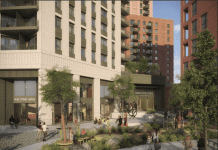New research published by property marketplace, TheHouseShop, has revealed that almost half of Brits (45% excluding “don’t know”) believe there will be a housing crash in the next 5 years
Although house price rises have tempered somewhat over the past 12 months, a sizable proportion of UK adults still believe that we are heading for another boom and bust cycle.
The research asked people to identify if, and when, they believed the UK housing market would experience a crash, and offered a range of timescales for respondents to choose from. Looking at the positives from the results, just 4% of people thought there would be a housing crash in the next 12 months. However, this figure rises to 17% of people who predict a crash within the next 2 years, and a sizable 60% of respondents who predict a crash within the next decade.
YouGov survey results

*Results have been re-based to remove “don’t know”
One-third of respondents were confident in the stability of the market and said that we would not see another housing crash at any point in the future. Figures from the beginning of this year highlighted that house price growth has slowed considerably compared to the same period last year, with a 2.2% increase in January 2018 compared to a 5.7% increase in Jan 2017. On top of this, the average house price in the UK decreased slightly between November 2017 and February 2018, dropping from £226,408 to £223,285 (according to Halifax).
There was a clear generational divide regarding the ability of the housing market to avoid a crash in future. Respondents in the 55+ age group were far more confident in the stability of the market when compared to younger demographics. More than 40% of 55 and overs said there would not be a crash in the future, compared to half that amount for respondents aged 25-34.
Nick Marr, co-founder of TheHouseShop.com, said:
“It was great to see that confidence in the short-term stability of the housing market has improved slightly since last year, but it is still worrying to see that almost half of Brits believe there will be a crash in the next 5 years. In reality, the likelihood of an all-out crash seems relatively small at the moment. House price growth has slowed significantly in the past 12 months and it seems we are experiencing a more tempered market correction.
“Hopefully the current path of a gradual cooling off in the market will continue, but there are still some wildcards that could force a more dramatic event. The possibility of a negative post-Brexit environment that drastically reduces investment confidence in the UK market is a real concern. Another potential worry is the inevitable interest rate rises that are likely to come in the next few years. Many people who bought their first home in the last decade have never experienced the 10-15% interest rates that we saw in the 1980’s and may have based their affordability calculations on the assumption that dirt low-interest rates would hang around forever.
“If interest rates rise to anything approaching the 5% mark, I think we would see some serious issues across both the sales and rental markets. A lot of tenants probably don’t realise that their rent payments are pegged to their landlord’s mortgage repayments – so a significant rates rise would effect not just mortgage holders, but renters too.”
Looking at the regional breakdown of the results, Londoners were most pessimistic about the future of the housing market in the short term, with over half (55%) predicting a crash within 5 years.
Confidence in the housing market has improved over last 9 months
TheHouseShop commissioned an identical survey in July last year to gauge opinion on the future of the market one year after the Brexit vote. Comparisons between the July 2017 and March 2018 results show that public perception of market stability seems to have improved over the past 9 months.
Comparing the 2 set of results; in July 2017, almost 1 in 4 Brits predicted a housing crash within the next 2 years, compared to just 17% who said the same in March 2018.













